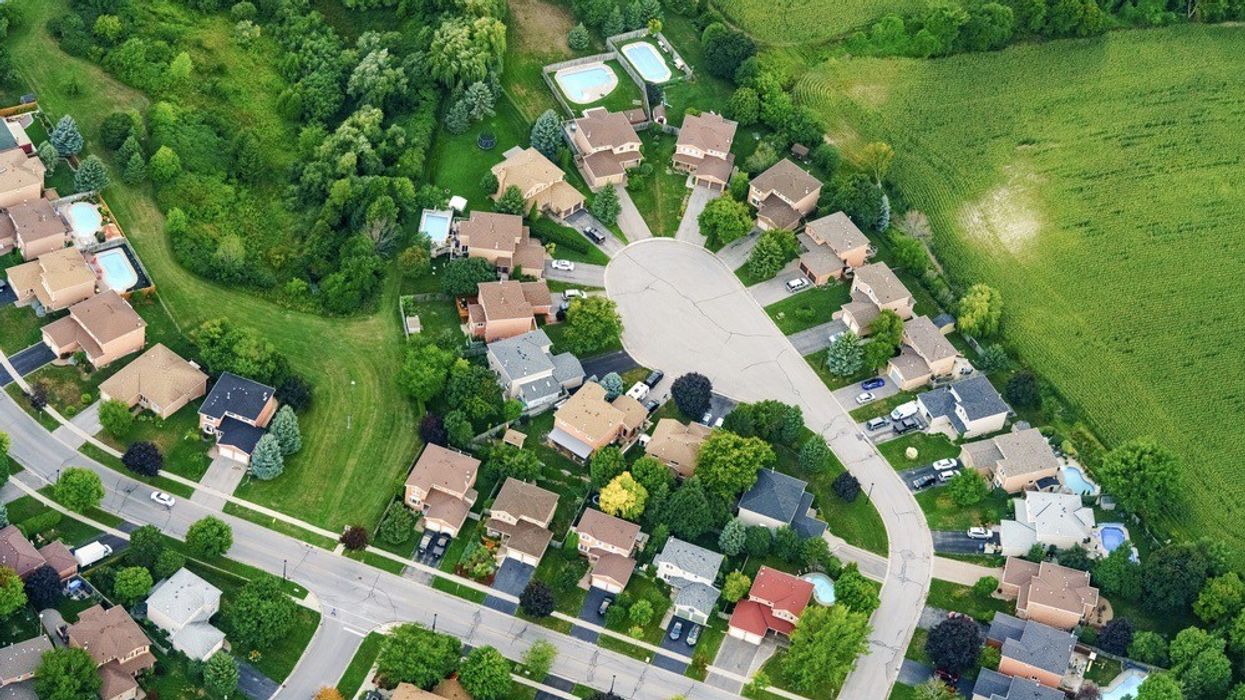The Bank of Canada rate hikes are having a clear effect on the country's biggest real estate markets, a new report from RBC says, with "significant pullbacks" seen in resale activity.
During the month of May, Toronto, Vancouver, Montreal, Ottawa, and Hamilton all saw a drop in home resales, with Toronto and Montreal in particular experiencing a rise in inventory levels.
"This is quickly easing what were extremely tight demand-supply conditions just a few months ago," the report reads. "In fact, most major markets in Canada have returned to balanced territory in May based on sales and new listings reported by local real estate boards."
RELATED: Terminated Listings Surge in Vancouver Amid Housing Market Softening
As to be expected, reduced interest in purchasing has brought with it lower prices in many markets, including Toronto, Vancouver, and the Fraser Valley. And they're likely not done dropping just yet, with the author of the report, RBC Senior Economist Robert Hogue, predicting "further reversal of the massive pandemic-era gains in these and other markets in the period ahead."
As of June 1, the Bank of Canada interest rate sits at 1.5% -- up significantly from the historically low 0.25% seen throughout the pandemic. The rate hikes, of which there are expected to be more throughout the year, are "straining affordability and weighing on property values, especially in expensive markets," Hogue writes.
Toronto experienced some of the country's most rapid price increases over the past two years but is now well past its frenzied peak. After seeing some of the tightest supply-demand conditions on record, the city is beginning to resemble how it looked during the 2017 correction, the report says. Toronto's steep prices mean sensitivity to interest rate changes is high, which Hogue says has put homebuyers on the defensive. He notes that home resales dropped 9.3% from April to May as inventory levels sat 26% above what they were one year ago.
"Buyers’ sense of urgency has significantly diminished, and so has their willingness to enter into bidding wars," Hogue wrote.
Detached homes in the outer suburban areas have been hit the hardest while condo sales in the City of Toronto itself have been somewhat insulated from these changes.
Vancouver's market has likely also peaked, the report says, with home resales falling more than 15% from April to May. Not only that, but Vancouver's MLS Home Price Index dropped nearly 1% month-over-month for the first time in two years.
"Vancouver buyers are the most rate sensitive in the country and will be seriously challenged by the Bank of Canada hiking by an additional 100 basis points as we anticipate," Hogue wrote. "This would exacerbate already intense affordability stress."
READ: Ontario is Moving Toward a Buyer’s Market, Here’s What That Means
What's expected to happen next is that buyers will gain an even stronger negotiating hand, allowing them to get more price concessions from sellers.
One market that hasn't followed these trends as closely is Calgary, where the market is still bustling. Home resales are still above pre-pandemic peak levels and supply is still too low to meet demand. But, interestingly, the growth of home prices in the city was much less in May than was seen in previous months.
"Local buyers aren’t immune to rising interest rates and this may be dialling down the degree of competition between them," the report reads.





















